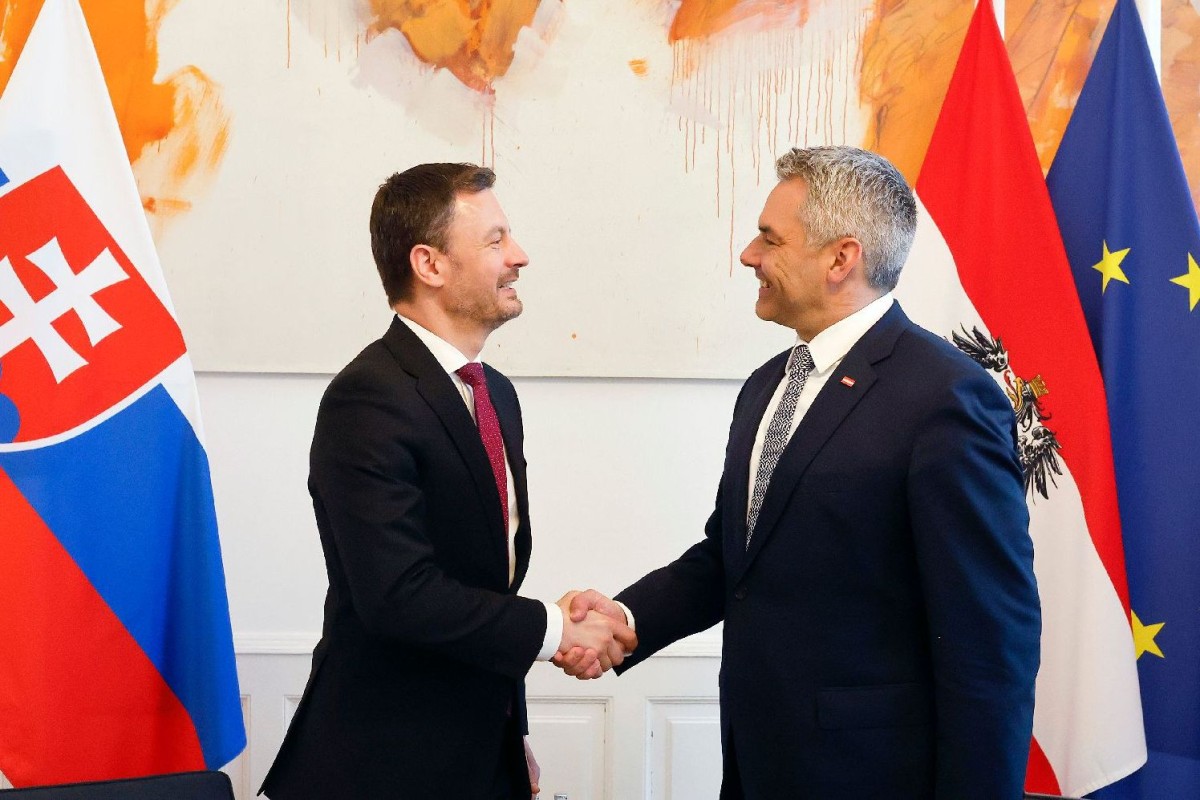Sponsored Content
Visit of the Slovak Prime Minister to Vienna: Disagreement on Nuclear Technology Issues
Eduard Heger, the Prime Minister of the Slovak Republic, visited Vienna earlier this week. In his conversations with Austria's Chancellor Karl Nehammer, he emphasized the importance of Ukraine's victory over the Russian invader and discussed nuclear power differences between the two countries.
 Prime Minister of the Slovak Republic, Eduard Heger and Austria's Chancellor Karl Nehammer. / Picture: © Bundeskanzleramt (BKA) / Dragan Tatic
Prime Minister of the Slovak Republic, Eduard Heger and Austria's Chancellor Karl Nehammer. / Picture: © Bundeskanzleramt (BKA) / Dragan Tatic
Earlier this week, the Prime Minister of the Slovak Republic, Eduard Heger visited Vienna. During his talks with Austria's Chancellor Karl Nehammer, he emphasised the enormous importance of Ukraine's victory against the Russian invader and spoke with Nehammer about the two countries' different views on nuclear power.
On one of the main topics of the two statesmen's…
or Log In
Fast News Search





